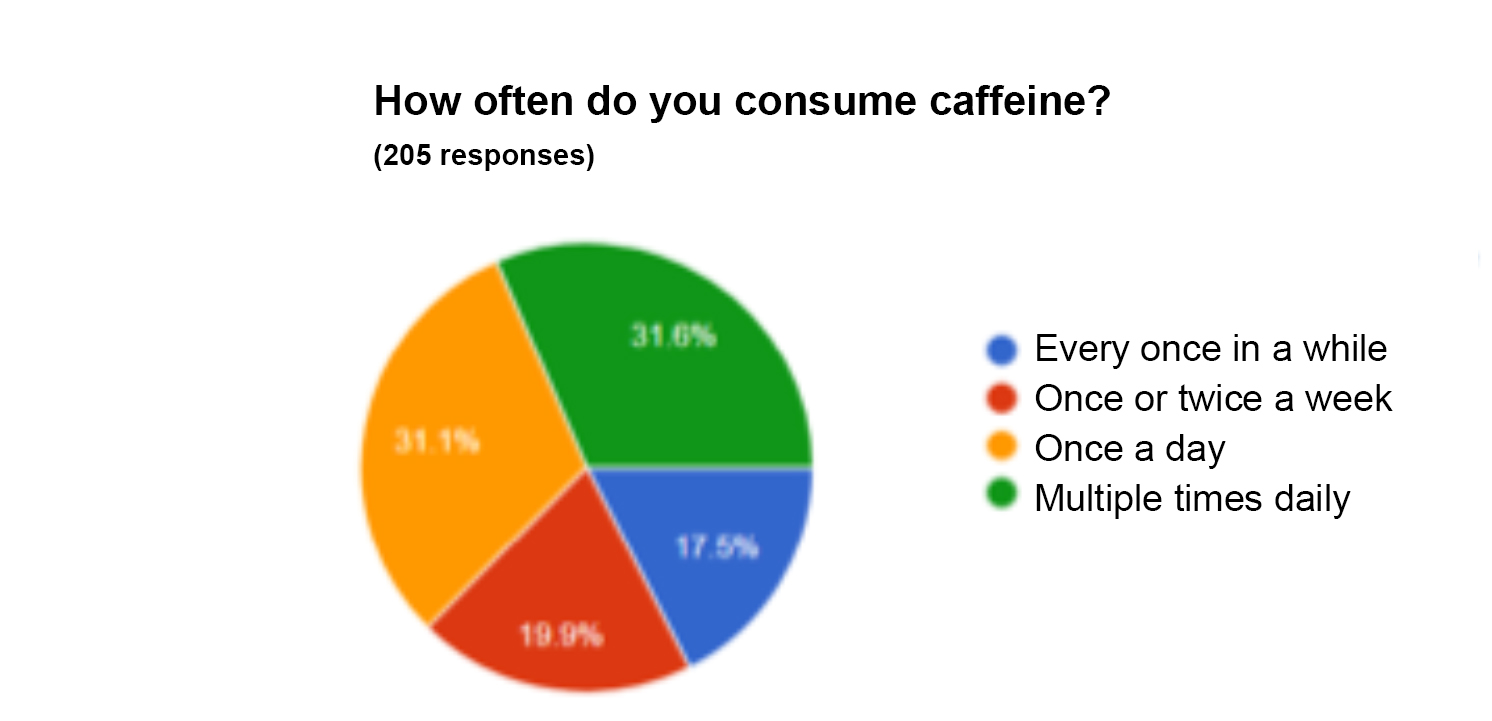Caffeine in College Life
Caffeine, as most of us know, is a chemical substance used in a number of forms to keep us awake and alert. It is a staple in most college students’ diets and continues to remain part of everyday life even after graduation. But why is this? Why is caffeine the go-to substance for so many people worldwide? A deeper understanding of the chemical itself along with a survey from our own campus may just help to spread some light on this.
Here are the results from our campus-wide survey:
According to a total of 205 Saint Francis University Students, the most common form of caffeine consumption is coffee and on average, most drink about a cup a day. From this data, we can conclude that caffeine is a big part of these college students’ lives. But what makes caffeine so special?
Caffeine, in its purest form, is a white powder that is added to many different products. From pills to drinks, it is widely available to consumers for very affordable prices. Originating from Ethiopia in the eleventh century, it has taken on a major part of many people’s lives in today’s modern, bustling world.
The effect the people consuming it are after is the increased awareness. Caffeine makes a person feel less tired and more alert, making it a very common morning starter. What many people don’t know are the other side effects that come along with this. Increased blood pressure, increased amount of stomach acid, muscle twitching, and even changes to estrogen production and the metabolism are common side effects from this drug.
Yes, drug. Caffeine is in fact classified as a drug, meaning that not only are there immediate side effects, there are also withdraw symptoms. Anxiety, irritability, headaches, and drowsiness are all common symptoms of caffeine withdrawal. In short, the saying, “You wouldn’t like me before my coffee,” takes on a whole new meaning.
Caffeine has even lead to a few deaths in the past. So why do we continue to take it daily? This is mostly due to the addictive need the substance holds over most of us. Those headaches we get in the morning are a sign of withdrawal and your body’s way of saying, “give me more!”
So what can we do to help ourselves? Limiting the amount of caffeine we drink in one day is the most important step to take. Avoiding energy drinks and other, more concentrated forms of caffeine is another good way to help yourself out.
In the end, we know most of us will continue to drink coffee or otherwise use caffeine no matter what anyone says, but the important thing to take away from this is the knowledge of how it affects your body. Paying attention to your limits and knowing when to stop is integral to maintaining good health.









